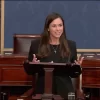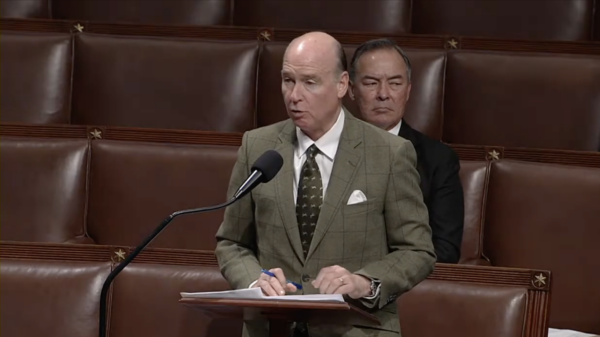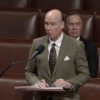U.S. Sen. Katie Britt, R-Alabama, has endorsed legislation that seeks to create greater transparency in federal permit applications for businesses.
The Permitting Transparency and Accountability Act would mandate federal agencies that issue permits to businesses to create a website where applicants may view their application and its progress.
Information on permitting agency websites would include steps completed and remaining in the permit process, alongside an expected timeframe for the application and contact information relevant for the applicant.
Britt sponsors the bill alongside U.S. Sen. Rick Scott, R-Florida; Sen. Joni Ernst, R-Iowa; Sen. Thom Tillis, R-North Carolina; Sen. Dan Sullivan, R-Alaska; Sen. Jim Justice, R-West Virginia; and Sen. Tim Sheehy, R-Montana.
“The Permitting Transparency and Accountability Act is a critical step in providing regulatory certainty,” Britt said.
“This effort is aligned with President Trump’s goal of building back America and growing our economy – progress should not be impeded by unnecessary regulation or a lack of transparency,” she continued.
“The federal permitting process can be an overly bureaucratic, frustrating, and long process that leaves applicants waiting with no information, no timeline, and no updates on the status of approval. It’s time to fix that,” said Scott. “Americans deserve a federal government that is fully transparent and works efficiently to support their success, and this bill will be a great step to better serve Americans.”
Britt’s office described the proposed legislation as part of the senator’s commitment to “cutting red tape and increasing transparency” in the federal permitting process.
Britt’s press release announcing the legislation also drew attention to her opposition to the Biden administration’s 2023 definition of “waters of the United States,” as it pertains to the Clean Water Act.
Britt described the administration’s ruling on the term’s definition as “overreaching, ambiguous, and job-killing.”
Former President Joe Biden expanded the scope of WOTUS in 2023, following the first Trump administration’s ruling, which withdrew expansions made during the Obama administration.
Lawsuits from 27 states challenged Biden’s WOTUS rules.
This includes Sackett v. Environmental Protection Agency, which lifted Clean Water Act jurisdiction over certain wetlands and prompted the Biden administration to revise its WOTUS rules to comply with the decision.
Several lawsuits were filed subsequently, arguing the conforming rule offered an overly broad interpretation of Sackett’s ruling on the definition of protected wetlands.
Much of the opposition to the Biden administration’s WOTUS policies have come from commercial farmers who say the rulings have been ambiguous and may unintentionally restrict typical farming features like ditches and stock ponds. Meanwhile, environmental activists have argued the Sackett ruling and plans to de-regulate waterways further will threaten clean water access in wetlands and the communities surrounding them.
EPA Administrator Lee Zeldin announced last month his administration is working to change the rule, issuing an initial ruling which removes protections for wetlands that don’t directly abut regulated waters but are connected by “a non-jurisdictional ditch, swale, pipe or culvert.”
The administration has invited the public to offer recommendations on how to best define key terms relevant to WOTUS regulation.
Britt argued last month after Zeldin’s announcement that redefining the rule will reduce unnecessary red tape faced by farmers.
“I’m of the belief that food security is national security, and our agriculture community continues to be under attack, but that is no longer. Common sense has finally been restored, both at the White House and here at the EPA,” Britt said.
Britt’s office also pointed to her support of the Unlocking Domestic LNG Potential Act, which would place facilities that import or export liquified natural gas in the jurisdiction of the Federal Energy Regulatory Commission.
Britt argued the bill is another example of legislation she has supported to streamline federal regulation of businesses.
“This legislation to streamline the permitting process for LNG export terminals is a critical step in implementing President Trump’s America First energy agenda so foreign customers don’t turn to other suppliers, including our adversaries,” Britt said.
















































